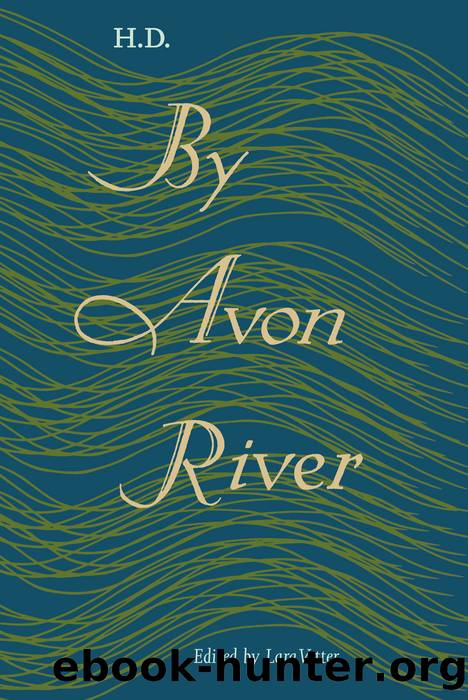By Avon River by Unknown

Author:Unknown
Language: eng
Format: epub
Publisher: University Press of Florida
Published: 2016-11-15T00:00:00+00:00
John Lyly is another of the great group. Euphues is remembered because of euphuism, a word coined from the name of the hero of Lylyâs extravagant Anatomy of Wit. It is said that both Shakespeare and Ben Jonson wrote parodies on Lyly and his intention to re-make the English language. We find Shakespeareâs parody in Loveâs Labourâs Lost and Jonsonâs in Every Man Out of His Humour. But John Lyly, the poet lives, though Lyly the exponent of rhetoric, is shelved and un-read save by experts and historians.
What bird so sings, yet so does wail?
O âtis the ravished nightingale.
Jug, jug, jug, jug, tereu! she cries,
And still her woes at midnight rise.
Brave prick-song! Who isât now we hear?
None but the lark so shrill and clear;
How at heavenâs gate she claps her wings,
The morn not waking till she sings.
Hark, hark, with what a pretty throat
Poor robin redbreast tunes his note;
Hark how the jolly cuckoos sing
Cuckoo! to welcome in the spring!
Cuckoo! to welcome in the spring!
Thomas Heywood is reputed to be the author of two hundred and twenty plays, of which only twenty-three have survived. He dealt chiefly with country scenes and country people.
Pack clouds, away, and welcome day!
With night we banish sorrow.
Sweet air, blow soft; mount, lark, aloft
To give my Love good-morrow!
Wings from the wind to please her mind,
Notes from the lark Iâll borrow;
Bird, prune thy wing, nightingale, sing:
To give my Love good-morrow!
To give my Love good-morrow!
Notes from them all Iâll borrow.
Francis Bacon, like John Lyly, was steeped in the policies and politics of the time. He has been called one of the greatest of philosophers. He wrote essays, Counsels, Civil and Moral, the Advancement of Learning, and a translation of De Augmentis Scientiarum. The following poem is a transcription from the Greek.
The worldâs a bubble; and the life of Man
Less than a span:
In his conception wretchedâfrom the womb
So to the tomb!
Curst from his cradle, and brought up to years
With cares and fears.
Who then to frail mortality shall trust
But limns on water, or but writes in dust.
Our own affection still at home to please,
Is a disease;
To cross the sea to any foreign soil,
Peril and toil;
Wars with their noise affright us; when they cease
Weâre worse in peace.
What then remains, but that we still should cry
For being born, or, being born, to die?
This is one theme of the Elizabethan age. Webster and Middleton are outstanding examples of the black wave of terror and depression that swept over the island, as a result of the dissolution of the monasteries and the seven years, spent by Mary in seeking to restore them. Following the fires of martyrdom and the reeking stench of the unburied, was an aftermath or after-birth of Hell. I have spoken of Dante. Webster, Middleton, Nash, Lodge, Donne plunged lower into the Inferno. There was a Purgatorio, however, implicit in the Duchess of Malfi and a Mad World my Masters. Dante, like Sophocles, drew on the abstract. Webster, Middleton, Dekker, Ford, Massinger and a host of others, portrayed, in a renaissance setting, parables that represented unbearable actuality.
Download
This site does not store any files on its server. We only index and link to content provided by other sites. Please contact the content providers to delete copyright contents if any and email us, we'll remove relevant links or contents immediately.
The Fine Print (Dreamland Billionaires Book 1) by Lauren Asher(2562)
Fury of Magnus by Graham McNeill(2452)
The Last House on Needless Street by Catriona Ward(2407)
The Rose Code by Kate Quinn(2221)
A Little Life: A Novel by Hanya Yanagihara(2151)
The God of the Woods by Liz Moore(1947)
Malibu Rising by Taylor Jenkins Reid(1928)
Luster by Raven Leilani(1904)
Transcendent Kingdom by Yaa Gyasi(1862)
Moonflower Murders by Anthony Horowitz(1853)
The Lost Book of the White (The Eldest Curses) by Cassandra Clare & Wesley Chu(1704)
This Changes Everything by Unknown(1509)
The Midwife Murders by James Patterson & Richard Dilallo(1494)
The New Wilderness by Diane Cook(1445)
The Lying Life of Adults by Elena Ferrante(1434)
Wandering in Strange Lands by Morgan Jerkins(1430)
Written in the Stars by Alexandria Bellefleur(1408)
Ambition and Desire: The Dangerous Life of Josephine Bonaparte by Kate Williams(1394)
The Lying Life of Adults by Elena Ferrante;(1313)
